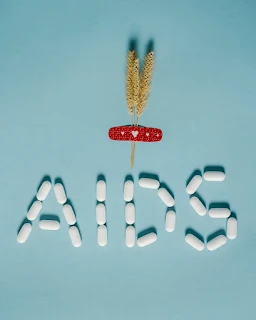Learning Journal by Mushimbami Victor
<script async src="https://pagead2.googlesyndication.com/pagead/js/adsbygoogle.js?client=ca-pub-5632014805880740"
crossorigin="anonymous"></script>
HIV and AIDs
Sexual behavior in Zambia: a public health concern
Sexual behavior has been widely reported in Zambia, in schools, among government officials, hospitals, churches, and communities. It is all over social media and news.
I agree with Ogden (2018), who said that “we can change our behavior by watching those around us and focusing on the behaviors we want to copy” (p. 29). She also said that we can learn behavior from our families, friends, health professionals, teachers, work colleagues, and people we watch on social media. Therefore, those around us can influence how we behave, either negatively or positively. (Ogden, 2018).
The behavior is likely to happen again if there are people who cheer and enjoy it. This is what I see in my country and on social media. There is a lot of cheering going on. Whenever there is a sexual scandal, they treat it as pornography. News media are busy posting and praising such acts. (Ogden, 2018).
We believe what we see and what we believe affects our behavior. This is leading to more sexual behavior in my country, resulting in HIV/AIDS. By 2030, Zambia might be one of the most affected nations in Africa. According to Globalization and Health (2022), “worldwide, about 50% of all new cases of HIV occur in youth between age 15 and 24 years. Studies in various sub-Saharan African countries show that both out-of-school and in-school adolescents and youth are engaged in risky sexual behaviors” (p. 1).
My thoughts
Lack of knowledge and awareness about HIV/AIDS and its prevention is a major challenge in Zambia. Even those who are informed do not always act on what they know. This is influenced by their beliefs and behaviors. Many Zambians think that having unprotected sex is enjoyable and that sleeping with many women makes them popular. They also think that HIV/AIDS is no different from malaria and they do not fear it anymore. They do not consider the risks of finding sexual partners at the clinic, where they might have gone for HIV testing or treatment. (Globalization and Health, 2022)
Music and movie industries are also contributing to the spread of HIV/AIDS in our nation. Musicians and actors often dress inappropriately and display sexual images in their songs and movies. These influence the behavior of the viewers and listeners. Health professionals should also be careful in how they counsel people with HIV/AIDS. Sometimes, their advice could encourage them to continue infecting others.
Reference
Ogden, J. (2018). The Psychology of Health and Illness. https://my.uopeople.edu/pluginfile.php/1644831/mod_book/chapter/389547/REF-OgdenText.pdf
Globalization and Health. (2022). Effects of peer education intervention on HIV/AIDS related sexual behaviors of secondary school students in Addis Ababa, Ethiopia: a quasi-experimental study. https://reproductive-health-journal.biomedcentral.com/articles/10.1186/s12978-015-0077-9


.jpeg)
Comments